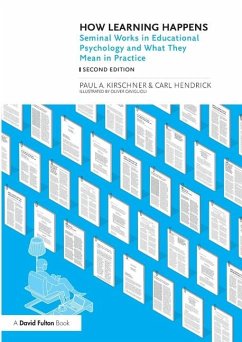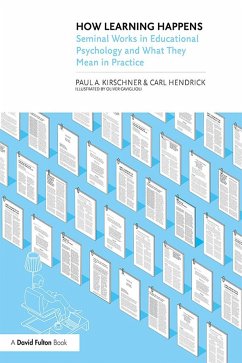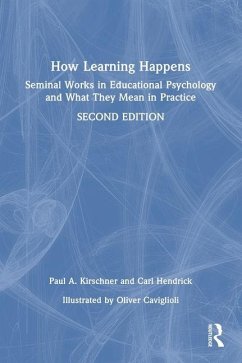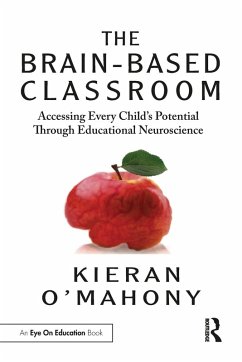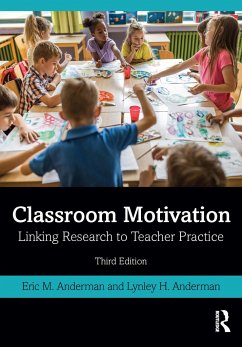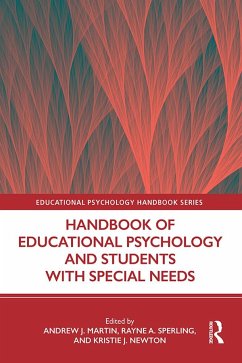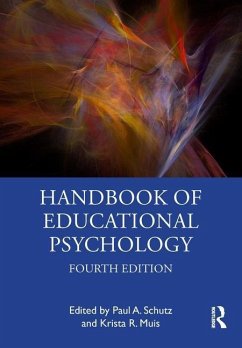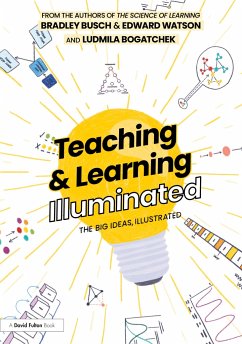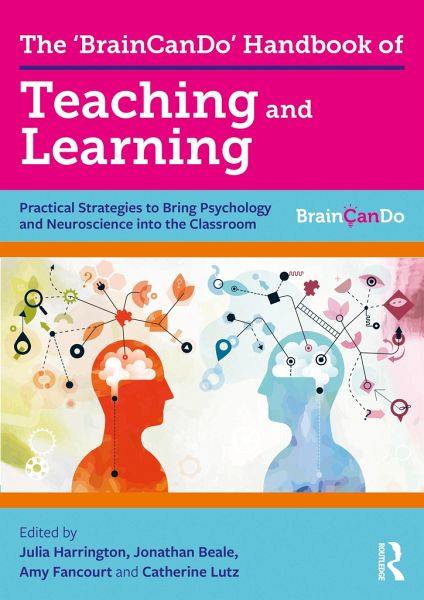
The 'BrainCanDo' Handbook of Teaching and Learning
Practical Strategies to Bring Psychology and Neuroscience into the Classroom
Herausgegeben: Harrington, Julia; Beale, Jonathan; Fancourt, Amy; Lutz, Catherine

PAYBACK Punkte
13 °P sammeln!
The 'BrainCanDo' Handbook of Teaching and Learning provides teachers and school leaders with a concise summary of how some of the latest research in educational neuroscience and psychology can improve learning outcomes. It aims to create a mechanism through which our growing understanding of the brain can be applied in the world of education. Subjects covered include memory, social development, mindsets and character.Written by practising teachers working in collaboration with researchers, the chapters provide a toolkit of practical ideas which incorporate evidence from psychology and neurosci...
The 'BrainCanDo' Handbook of Teaching and Learning provides teachers and school leaders with a concise summary of how some of the latest research in educational neuroscience and psychology can improve learning outcomes. It aims to create a mechanism through which our growing understanding of the brain can be applied in the world of education. Subjects covered include memory, social development, mindsets and character.
Written by practising teachers working in collaboration with researchers, the chapters provide a toolkit of practical ideas which incorporate evidence from psychology and neuroscience into teaching practice with the aim of improving educational outcomes for all. By increasing both teachers' and pupils' understanding of the developing brain, 'BrainCanDo' aims to improve cognitive performance and attainment, foster a love of learning and enable a healthy and productive approach to personal development.
This book will appeal to educators, primarily those working in secondary schools, but also those within higher and primary school education. It will also be of interest to students of education, professionals looking to enhance their teaching and researchers working in the fields of education, psychology and neuroscience.
Written by practising teachers working in collaboration with researchers, the chapters provide a toolkit of practical ideas which incorporate evidence from psychology and neuroscience into teaching practice with the aim of improving educational outcomes for all. By increasing both teachers' and pupils' understanding of the developing brain, 'BrainCanDo' aims to improve cognitive performance and attainment, foster a love of learning and enable a healthy and productive approach to personal development.
This book will appeal to educators, primarily those working in secondary schools, but also those within higher and primary school education. It will also be of interest to students of education, professionals looking to enhance their teaching and researchers working in the fields of education, psychology and neuroscience.





